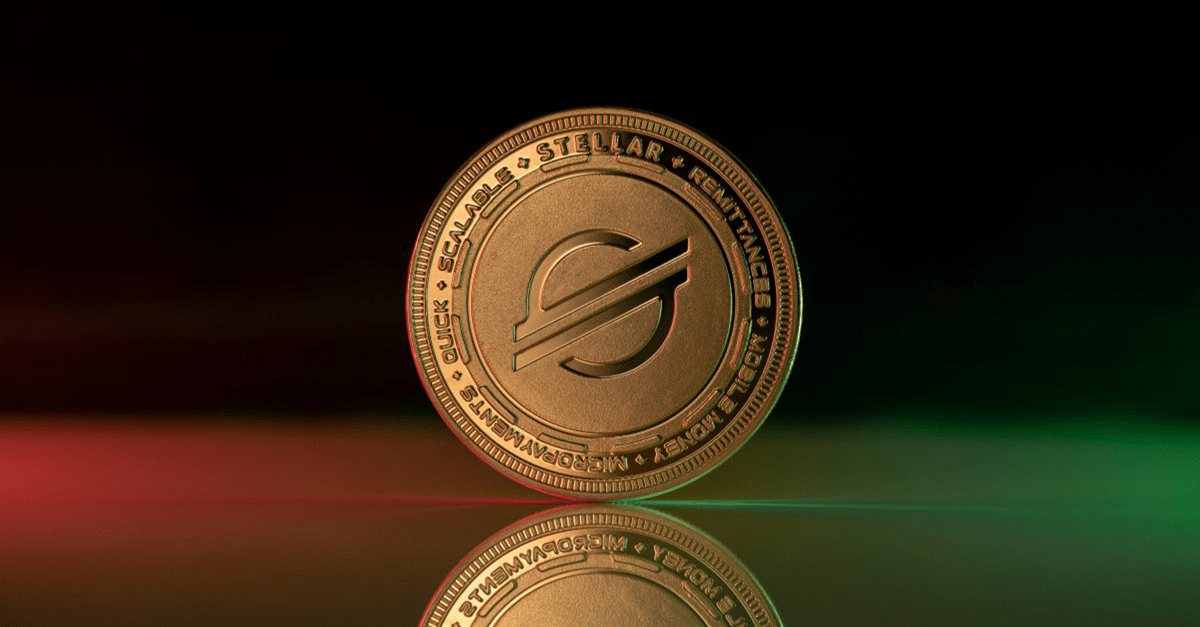Join Our Telegram channel to stay up to date on breaking news coverage
El Salvador is increasingly shifting away from reliance on external debt and is focusing instead on Bitcoin and strategic investments. El Salvador’s Bitcoin reserves have reached 5,870 BTC, reflecting the government’s commitment to integrating digital assets into the national economy. Under President Bukele’s leadership, El Salvador became the first country to adopt Bitcoin as legal tender, marking a significant milestone in the global adoption of cryptocurrencies.
This move highlights a growing trend as other nations may consider integrating digital assets into their economies. As interest in cryptocurrencies grows, investors are increasingly looking for the top cryptocurrencies to buy now, seeking opportunities in this rapidly evolving financial landscape.
Top Cryptocurrencies to Buy Now
Uniswap Labs recently announced that Uniswap has achieved an important milestone. Meanwhile, Mega Dice is preparing to debut in the decentralized gambling space, with the token presale for DICE approaching its final stage, having already raised over $1.8 million. In a notable update, Chainlink’s Data Feeds are now live on the Soneium Minato Testnet, marking a key step in Soneium’s integration with Chainlink’s SCALE program.
1. Uniswap (UNI)
Uniswap recently reached a significant milestone, as announced by Uniswap Labs. Over 993,000 tokens have been traded on the platform this year, a sharp rise compared to 230,000 tokens in September 2023. This jump highlights increasing activity on the exchange.
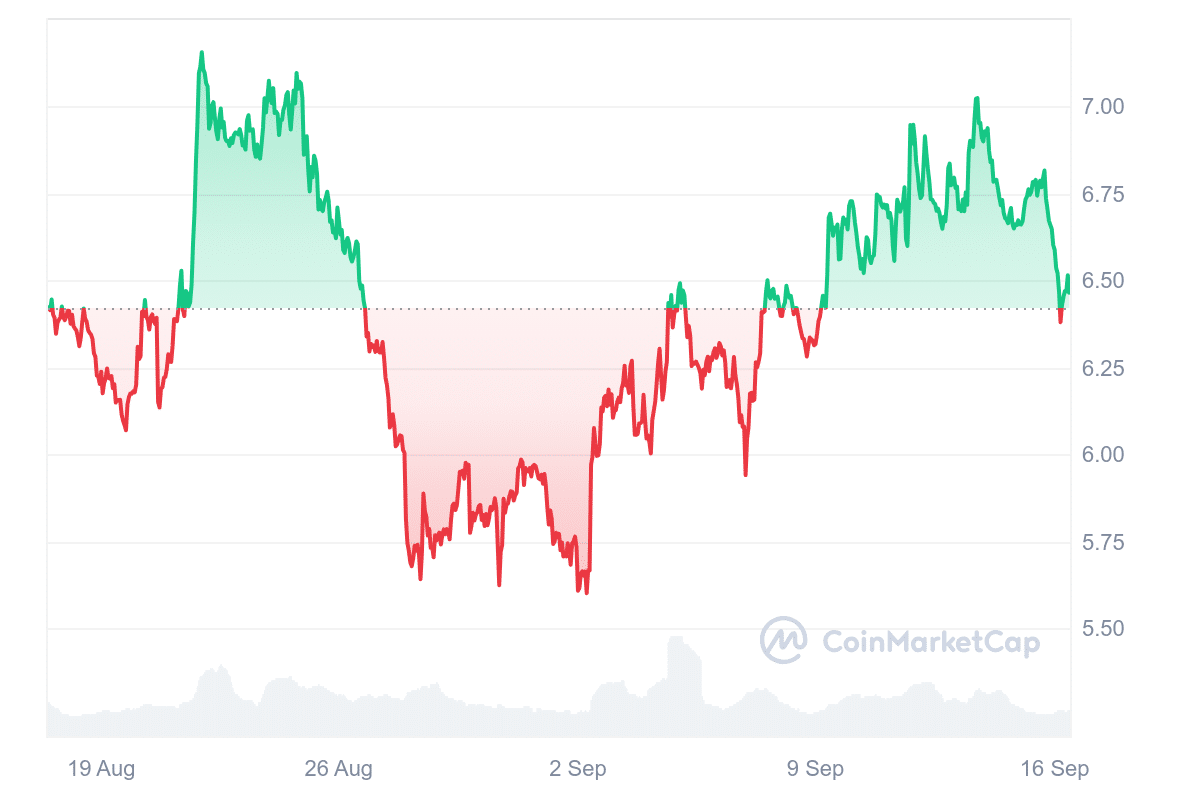
Furthermore, Uniswap differentiates itself through its automated market maker (AMM) system. Unlike traditional exchanges, which match buyers and sellers via order books, Uniswap uses liquidity pools. Users contribute assets to these pools and, in return, earn a portion of transaction fees.
Swapping on L2s just got a major upgrade
You can now view and select tokens across all networks at once, removing the need to switch between networks entirely
Swap smarter, not harder. 🫡 pic.twitter.com/k2xnedlFxs
— Uniswap Labs 🦄 (@Uniswap) September 11, 2024
This model promotes a more decentralized, user-driven marketplace. Meanwhile, the UNI token is currently priced at $6.4, with a daily decline of 4.98%. Despite this drop, UNI has shown monthly gains of 0.12%. Over the past year, the token’s value has grown by 50%, outperforming half of the top 100 crypto assets.
From a technical perspective, UNI’s position above its 200-day simple moving average strongly indicates its long-term strength. The token has also shown price increases in 15 days out of the past month. With high liquidity and availability on major exchanges like KuCoin, UNI’s stability and potential for growth make it a key player in the crypto market, reassuring investors and analysts.
2. Osmosis (OSMO)
Osmosis recently introduced Polaris, a “token portal” designed to tackle decentralized finance’s core issues. The platform aims to streamline trading tokens across various blockchains using a single interface, eliminating the need for multiple wallets, bridges, or gas tokens. This marks a potential improvement for users accustomed to navigating different interfaces and systems across different networks.
Polaris represents a strategic shift for Osmosis, a prominent network within the Cosmos ecosystem known for its interconnected blockchains. Previously, Osmosis positioned itself as a liquidity hub for Cosmos-based networks. However, with Polaris, Osmosis now broadens its scope to include non-Cosmos blockchains such as Ethereum and Solana.
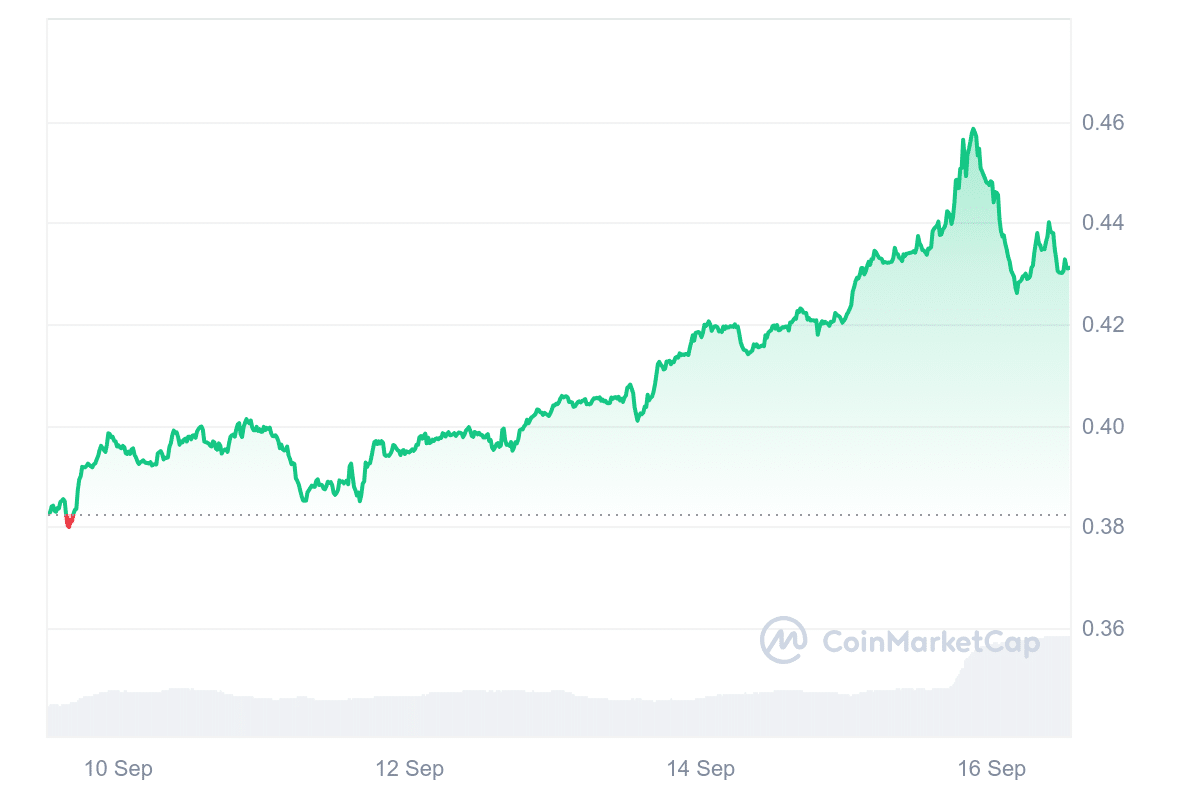
This change signals a new approach to liquidity management, positioning the platform as a more versatile option for users from different blockchain ecosystems. Furthermore, Osmosis operates as a decentralized exchange (DEX) within Cosmos. This protocol allows seamless transfers of tokens between different blockchains in the Cosmos ecosystem.
Introducing Polaris, the Token Portal: From any wallet, one-click trade all tokens across all chains 👀
👉 @Polaris_App https://t.co/KOBUSo76cb
— Osmosis 🧪 (@osmosiszone) September 11, 2024
Following the announcement of Polaris, Osmosis’ native token, OSMO, has experienced a significant surge in price. Currently trading at $0.4311, OSMO has seen a remarkable 12.59% increase over the past week. With 18 ‘green’ days in the last 30 days, indicating a high market liquidity level, OSMO’s strong market performance highlights investor confidence in the platform’s recent developments.
In addition, Polaris marks a significant evolution for Osmosis, expanding its reach beyond the Cosmos ecosystem and addressing key usability challenges in DeFi. Analysts predict this will lead to broader adoption as the early market reactions are promising.
3. Chainlink (LINK)
Chainlink operates as a decentralized platform within the Oracle network. Its primary function is to bridge the gap between smart contracts and real-world data by connecting these contracts to external, off-chain sources through a network of nodes. This feature enhances the capability of smart contracts, allowing them to interact with real-world events like payments or service bookings while maintaining security and reliability.
Beyond real-time data integration, Chainlink also enables off-chain computing and cross-chain interoperability. This makes it a versatile platform for dApps that need data from external, non-blockchain sources. The platform’s native cryptocurrency, LINK, is a payment method within the system, particularly compensating node operators who supply off-chain data and services.
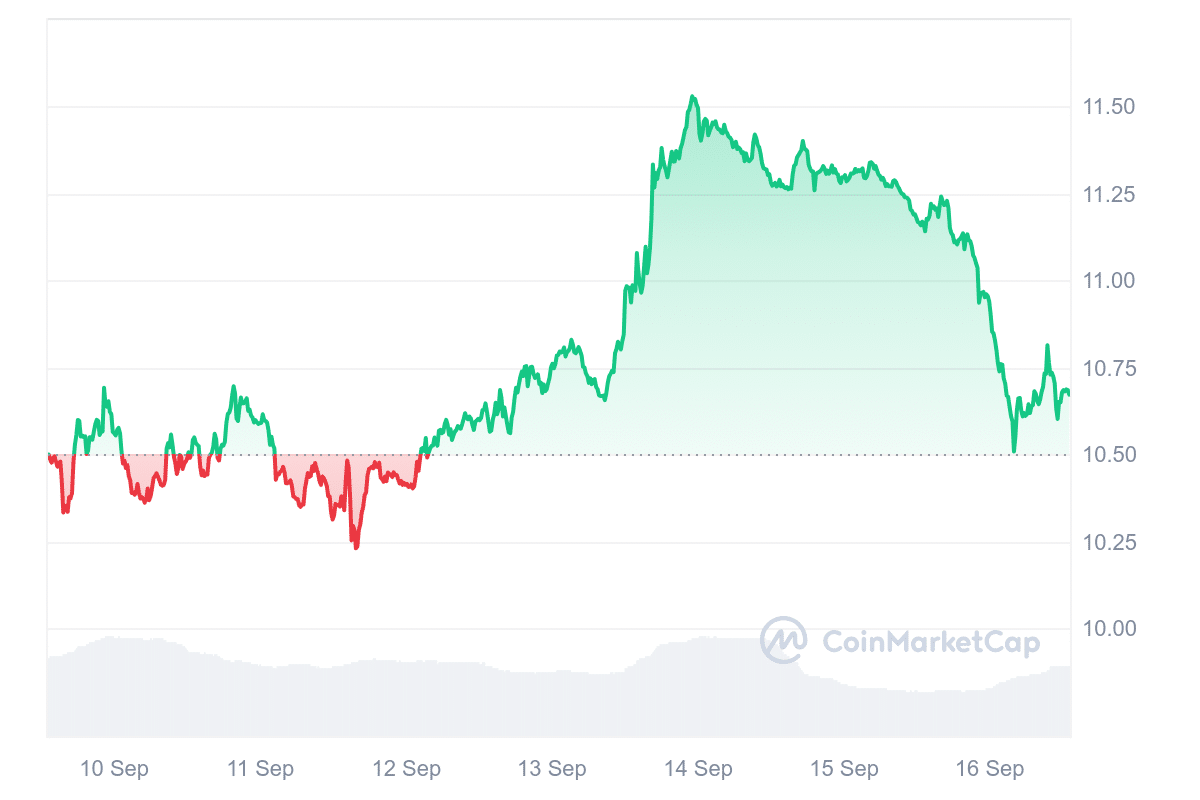
Moreover, Chainlink is built on the Ethereum blockchain, but its blockchain-agnostic design also supports other blockchains. This flexibility is useful for delivering real-world data to various decentralized finance (DeFi) projects across multiple blockchain ecosystems. Despite its compatibility with many platforms, Chainlink retains the security standards of the Ethereum blockchain.
.@Soneium—a next-gen blockchain by #Sony Block Solutions Labs—is joining the #ChainlinkScale program, with Chainlink Data Feeds now live on Soneium Minato Testnet.
Soneium will also integrate Chainlink CCIP as its canonical cross-chain infrastructure.https://t.co/dahG0rbBwb pic.twitter.com/3Xr55ysqiG
— Chainlink (@chainlink) September 12, 2024
A recent and significant development involves Chainlink’s Data Feeds going live on the Soneium Minato Testnet as part of Soneium’s integration with Chainlink’s SCALE program. Additionally, Soneium plans to adopt Chainlink’s Cross-Chain Interoperability Protocol (CCIP) to serve as its core cross-chain infrastructure.
Currently, LINK is trading at $10.61, with a modest weekly gain of 1.04%. Trading volume has surged by 57.89%, reaching $190 million. The token has performed positively in 16 out of the last 30 days, signalling 53% of green days.
4. Mega Dice (DICE)
Mega Dice is gearing up to enter the decentralized gambling market, with its token presale for DICE nearing its final phase. So far, the project has raised over $1.8 million, reflecting increasing interest from investors evaluating its potential in a crowded crypto market.
The platform aims to bridge traditional casino gaming with blockchain technology. With a library of over 4,000 games, Mega Dice focuses on making its platform accessible to a broad audience through a user-friendly interface. The integration of crypto investments and online gaming appeals to casual gamers and those familiar with digital assets.
BREAKING: $DICE Presale Extended by 1 More Week! 🚨
You heard it right—$DICE presale has been extended until September 29th, 8pm CET!
This is your final chance to get in on the leading #GameFi token on Solana before trading goes live! 🚀Buy now: https://t.co/Pk6R16oOKk 🚀
🗓️… pic.twitter.com/jIpIskAMpM
— Mega Dice Casino (@megadice) September 13, 2024
One factor driving interest is Mega Dice’s established presence within the crypto gambling sector. Operating on the Solana blockchain, the platform currently has 10,000 active users and a monthly betting volume of $50 million. These figures place it ahead of many competitors in the space. Additionally, it’s rare for a well-established platform to launch a presale, making this event particularly noteworthy.
As the presale ends in 13 days, it is expected to receive increased attention through promotions from key opinion leaders (KOLs). This push may help the project gain additional traction before the final stages of the presale. Mega Dice‘s strategy merges blockchain’s capabilities with an engaging user experience, signaling its intent to grow in the decentralized gaming sector.
5. Stellar (XLM)
Stellar is a decentralized blockchain network that prioritizes speed, scalability, and sustainability and is specifically designed for financial products and services. The platform’s infrastructure includes smart contract functionality and a protocol optimized for payment processing. Stellar’s architecture aims to maintain low fees while ensuring fast transaction times, allowing the network to handle higher volumes as adoption grows.
Since its launch, Stellar has processed billions of operations and maintains millions of accounts. Financial institutions and innovators leverage the network to issue assets and settle payments. Its efficiency and scalability have made it a platform of choice for those looking to integrate blockchain into traditional finance.
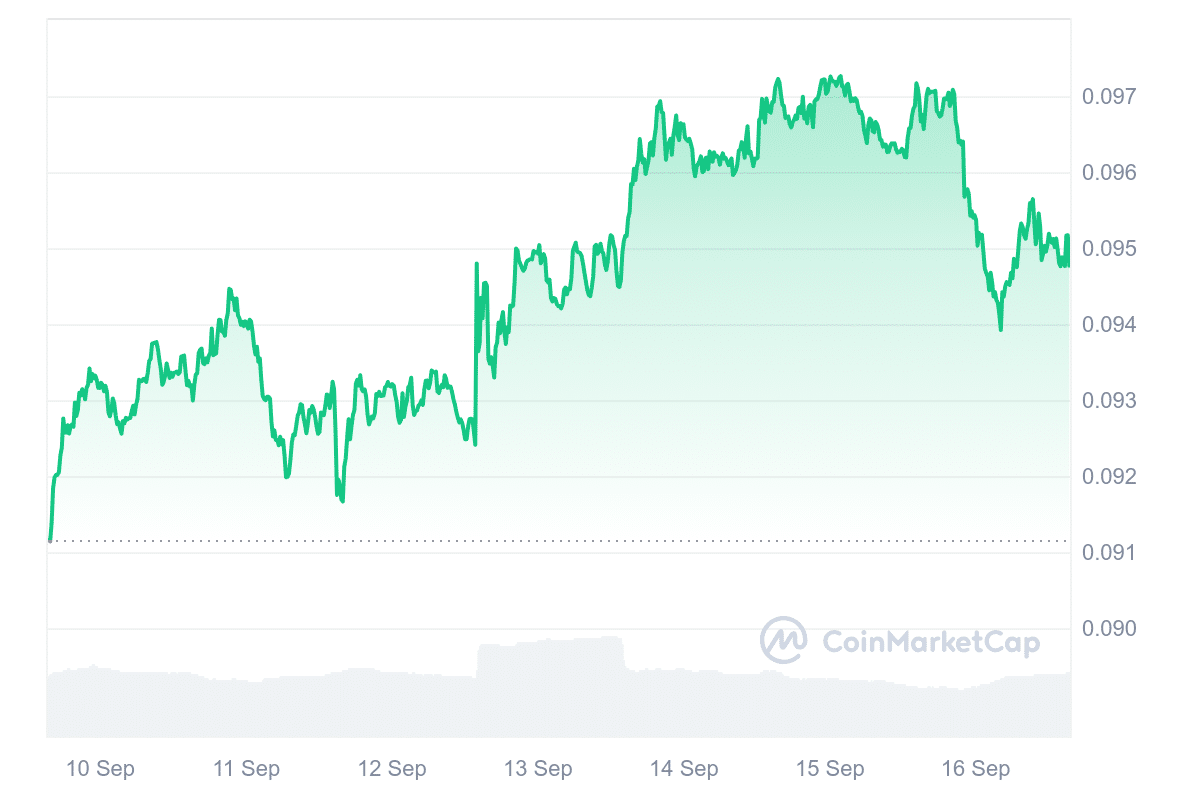
In response to growing concerns over cybersecurity, Stellar recently integrated Hypernative’s real-time threat detection and response platform. This addition enhances the security of the network and its projects, providing real-time monitoring and preventive measures against hacks.
Projects on Stellar will have access to Hypernative’s tools and expertise in incident response, enabling them to address security threats swiftly and recover lost funds if necessary. Furthermore, XLM is currently trading at $0.09465, marking a 3.83% rise in the past week.
Building #BetterOnStellar just got safer. Projects on Stellar now get advanced protection via @HypernativeLabs 🤜🤛 https://t.co/Vb0kk0FG02
— Stellar (@StellarOrg) September 10, 2024
Its 14-day Relative Strength Index (RSI) sits at 27.52, indicating that the asset is oversold, which could signal a potential price increase. XLM also shows a relatively low volatility rate of 4% over the last 30 days, with 18 positive trading days during the period.
Moreover, Stellar continues to make strides in financial technology by fostering secure, scalable, and efficient solutions in a constantly evolving market. However, market conditions remain dynamic, and investors should watch technical indicators and trends closely.
Read More
Best Wallet - Diversify Your Crypto Portfolio
- Easy to Use, Feature-Driven Crypto Wallet
- Get Early Access to Upcoming Token ICOs
- Multi-Chain, Multi-Wallet, Non-Custodial
- Now On App Store, Google Play
- Stake To Earn Native Token $BEST
- 250,000+ Monthly Active Users
Join Our Telegram channel to stay up to date on breaking news coverage
